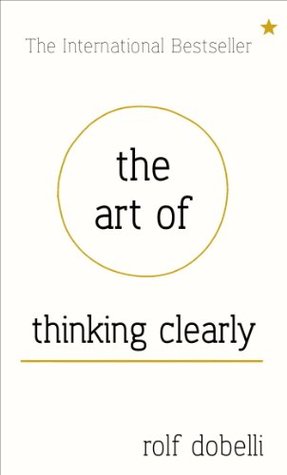More on this book
Community
Kindle Notes & Highlights
by
Rolf Dobelli
Read between
January 20 - January 26, 2024
survivorship bias, you must do the digging
people systematically overestimate their chances of success. Guard against it by frequently visiting the graves of once-promising projects, investments and careers. It is a sad walk, but one that should clear your mind.
Quite simply, the models are born attractive and only for this reason are they candidates for cosmetics advertising. As with the swimmers’ bodies, beauty is a factor for selection and not the result.
‘Google is so successful because the company nurtures a culture of creativity.’ Once this idea is on paper, the journalist corroborates it by mentioning a few other prosperous companies that foster ingenuity. Rarely does the writer seek out disconfirming evidence, which in this instance would be struggling businesses that live and breathe creativity or, conversely, flourishing firms that are utterly uncreative.
we systematically overestimate the risk of being the victim of a plane crash, a car accident or a murder. And we underestimate the risk of dying from less spectacular means, such as diabetes or stomach cancer. The chances of bomb attacks are much rarer than we think, and the chances of suffering depression are much higher.
The problem with all these questions is that, though valid, they just don’t make for a good yarn. Stories attract us; abstract details repel us. Consequently, entertaining side issues and backstories are prioritised over relevant facts. (On the upside, if it were not for this, we would be stuck with only non-fiction books.)
as football fans thinking they can swing a game by gesticulating in front of the TV. Unfortunately they share this illusion with many people who also seek to influence the world by sending out the ‘right’ thoughts (vibrations, positive energy, karma?. . .?).
The monkey story illustrates the outcome bias: we tend to evaluate decisions based on the result rather than on the decision process.
In conclusion: accept this piece of wisdom about auctions from Warren Buffett: ‘Don’t go.’
Since then, he has always felt uncomfortable on very warm days. If the temperature starts to heat up around one of his check-ups, he cancels straight away. Our brain is a connection machine.
itz true I remember certain fragrances which I feel are positive for me and others which are negative. Its natural.
Admittedly, in the short term the preponderance of stars can endanger your status, but in the long run, you can only profit from their contributions. Others will overtake you at some stage anyway. Until then, you should get in the up-and-comers’ good books – and learn from them. This is why I wrote the testimonial in the end.
we are drunk on our own ideas. To sober up, take a step back every now and then to examine their quality in hindsight.
Most people tend to extrapolate their preferences on to others. If they love the 1960s, they will automatically assume that the majority of their peers do, too. The same goes for 1980s aficionados. We frequently overestimate unanimity with others, believing that everyone else thinks and feels exactly like we do. This fallacy is called the false-consensus effect.
predisposition


